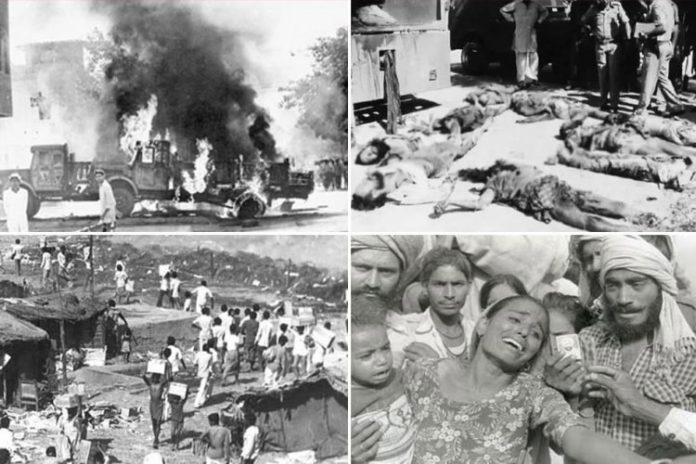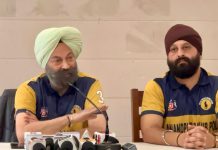
A Delhi court today awarded death penalty to convict Yashpal Singh and ordered life imprisonment to another, Naresh Sherawat, for killing of two men during the 1984 anti-Sikh riots that followed assassination of the then Prime Minister Indira Gandhi leaving nearly 3,000 people dead.In the first verdict after the riots-related cases were reopened by a Special Investigation Team (SIT) in 2015, the court held that Singh’s offence fell under the “rarest of rare” category warranting the death penalty. The Delhi Police had closed this case in 1994 for want of evidence.The SIT is investigating nearly 60 cases related to the riots, while it has filed “untraced report” in 52 cases.
The court also imposed fine of Rs 35 lakh each on both the convicts and directed payment of the fine amount as compensation to surviving family members of deceased Hardev Singh and Avtar Singh.While this is the first death penalty after the SIT was formed, one Kishori was earlier given the death penalty by a trial court in as many as seven anti-Sikh riots cases. However, the Delhi High Court confirmed death penalty only in three cases, which were later commuted to life-term by the Supreme Court.Sikh leaders across parties, including Punjab Chief Minister Amarinder Singh, welcomed the court decision and hoped that others involved in the riots would also soon be brought to book for their “horrendous and inhuman acts”.“Convict Yashpal Singh is sentenced to death for the offence under Section 302 (murder) of the IPC. Convict Naresh Sehrawat is sentenced to life for the offence under section 302 (murder) of the IPC,” Additional Sessions Judge Ajay Pandey said.
Proceedings were held inside the Tihar Jail by Additional Sessions Judge Ajay Pandey due to security concerns as one of the convicts, Yashpal, was attacked inside the Patiala House District courts premises on November 15, the last date of hearing.The court directed that the complete original case file be submitted to the Delhi High Court for confirmation of the death penalty.As per the Code of Criminal Procedure (CrPC), the death penalty cannot be executed unless confirmed by the High Court.The convicts have also been awarded varying jail terms and fines for offences including attempt to murder, dacoity and attacking victims by dangerous weapons.The court spared convict Naresh the gallows while taking note of his medical condition and his lawyer’s arguments seeking leniency in the quantum of sentence.





